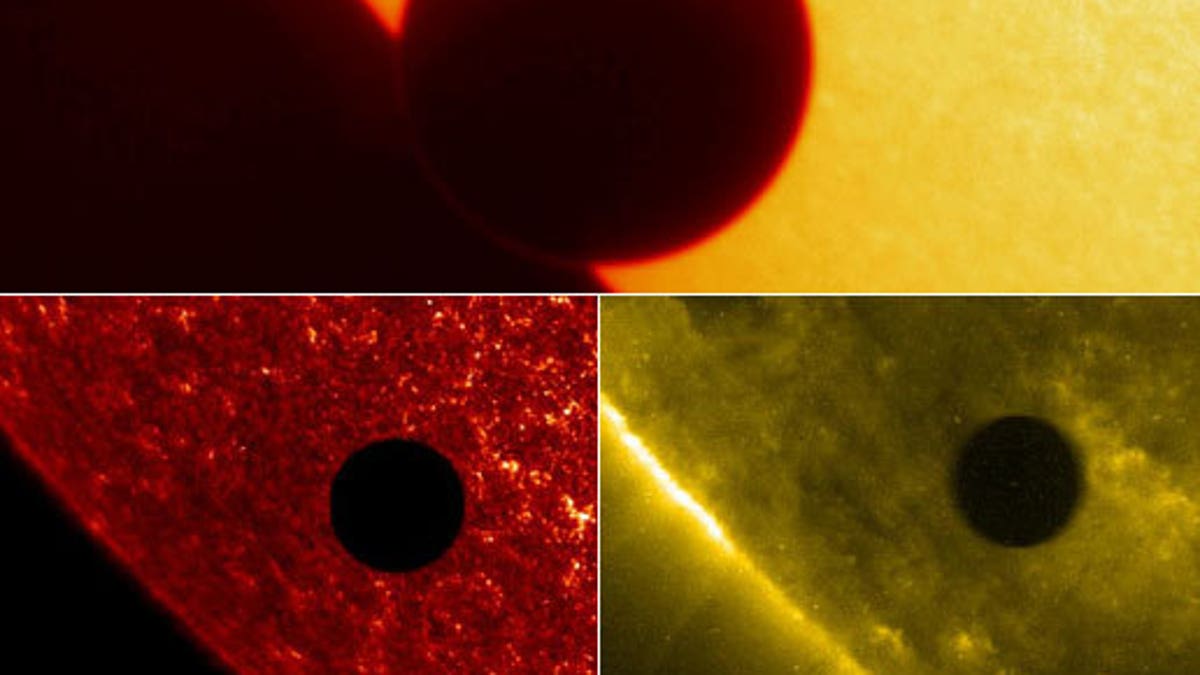
Astrologers are just as excited as astronomers about Tuesday's transit of Venus, a rare event that horoscope mavens associate with major upheaval and advancement throughout history.
Venus passes directly in-between the Sun and Earth in pairs eight years apart in cycles that occur every 105.5 or 121.5 years. The last transit happened in June 2004, and it will not happen again until December 2117. Astrologers note it only occurs in June and December, or during the signs Gemini and Sagittarius.
“It’s very hard for people to imagine Venus coming between the Earth and the Sun; it is an interesting time, and many people are feeling changes,” said Susan Miller, an astrologist who publishes the website astrologyzone.com.
[pullquote]
In the past, the transit of Venus has foreshadowed major events in history, according to astrologers. In the 1630s, when the first scientific observation of it occurred, Galileo's theories were advancing a new world view. In the 1760s, the event foreshadowed a period of military activity in Europe and America, astrologers say. Near the end of the 19th century, the transit coincided with a host of technological leaps, including the telephone and light bulb.
What cataclysmic events will this transit bring? Since they only seem to happen after the transit, Miller says, "we have to see what happens.”
How to watch the transit of Venus
The celestial happening isn't only associated with events in history, according to Shelley Ackerman, an astrologist and weekly columnist for the website theaesthete.com. It also affects the way people interact.
“Venus represents the things we love, the people we love, how we connect, and so does the sign of Gemini,” Ackerman said. “It’s very much about highlighting and drawing attention to our desire nature. It is all about our values. All of that is being punctuated with great intensity.”
If the transit of Venus has historically affected individuals and mankind as a whole, this one could end up being the biggest one of all. Many astrologers note that it will occur just months before the end of the Mayan calendar, on Dec. 21, 2012.
“The Mayans watched Venus obsessively, and had to have known that the end of their calendar would occur at the perfect time, in the same year as the transit of Venus,” Miller said, noting the Mayans were "terrified" of Venus.
But Ackerman figures Tuesday night's event might hark back to Thomas Edison, and not the apocalypse.
“Isn’t there a new iPhone coming out?” she quipped.
The transit of Venus ends at 12:51 a.m. ET, and will be visible from parts of North America, Europe, the Middle East and Africa.
